- Increase the value of marine products
- Ca Mau products affirm their brand
- Spreading local specialties
From this very land, a name has become a source of pride, not only for local people but also famous throughout the country: Cai Bat Aquaculture Processing and Trade Service Cooperative (Cai Bat Cooperative).
The development journey of Cai Bat Cooperative is an inspiring story about the solidarity and aspiration of farmers in Ca Mau. They have proven that with determination and the right vision, their hometown products can reach international standards.
And that aspiration has become a reality when Cai Bat Cooperative is the first cooperative in the country to achieve the Aquaculture Stewardship Council (ASC) certification; ISO 9001:2015 certification - International standard quality management system; and in 2024, the Central Committee of the Vietnam Farmers' Union recognized it as a typical cooperative nationwide. To date, Cai Bat Cooperative has 5 OCOP products and has been certified as a typical rural industrial product at the provincial and regional levels.
Great aspirations - proud achievements
Looking back at the early days of starting a business with many difficulties and challenges, I admire even more the determination and efforts of talented farmers.
Faced with the situation where shrimp farmers have to struggle with the problem of good harvest but low prices, and good prices but bad harvest, a group of farmers in Cai Bat hamlet sat down and discussed a new direction. They realized that to escape this vicious cycle, they needed to change their business methods, they could not rely solely on selling raw materials. From that thought, the idea of creating their own products from locally available shrimp, crab, and fish was formed.
Cai Bat Cooperative was established in 2013, with only 12 members. However, in the early stages, it faced the risk of bankruptcy due to business losses. The cooperative recovered when it was restructured by the authorities, merging two more local cooperatives and converting to a new cooperative model in 2016. From this point on, members began applying shrimp farming processes according to international aquaculture standards (ASC) and became the first cooperative in the country to achieve this certification.
Mr. Nguyen Hoang An, Chairman of the Board of Directors of Cai Bat Cooperative, shared: “This is the highest international standard for aquaculture. Achieving ASC certification is not easy. Cai Bat Cooperative has had to comply with strict standards on environment, society, animal welfare and food safety; at the same time, change traditional farming methods, and invest in quality management systems. But we understand that this is the only way to bring sustainable value and be able to compete in the international market.”
ASC certification has opened a new horizon for Cai Bat Cooperative, and more broadly for the entire Ca Mau and national seafood industry. The cooperative's black tiger shrimp products have been recognized globally, creating favorable conditions for export to demanding markets such as the US, Japan, Korea and European countries. This is a clear demonstration that the quality and reputation of Vietnamese agricultural products can reach the world level if properly invested and complying with international standards.
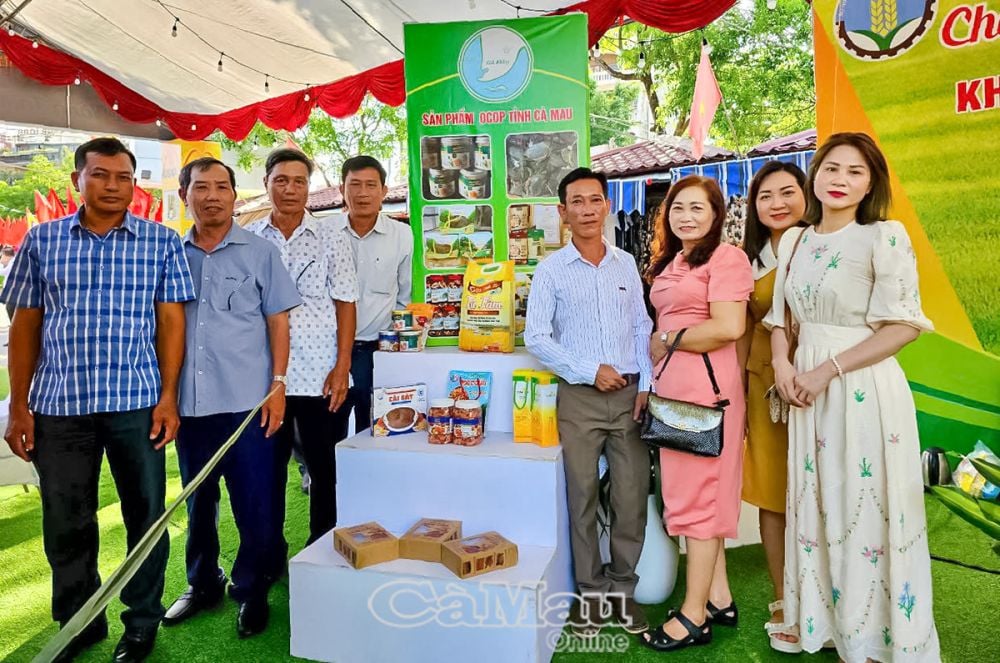
Not resting on its laurels, Cai Bat Cooperative continues its journey to improve product quality and value. In 2019, the Cooperative boldly invested in expanding its production scale, upgrading its infrastructure, and applying modern technology to its processing procedures. This investment has paid off with the Cooperative achieving ISO 9001:2015 certification by the end of 2023, an affirmation of its internationally recognized quality management system. This not only enhances the Cooperative’s reputation but also creates more confidence among consumers in product quality.
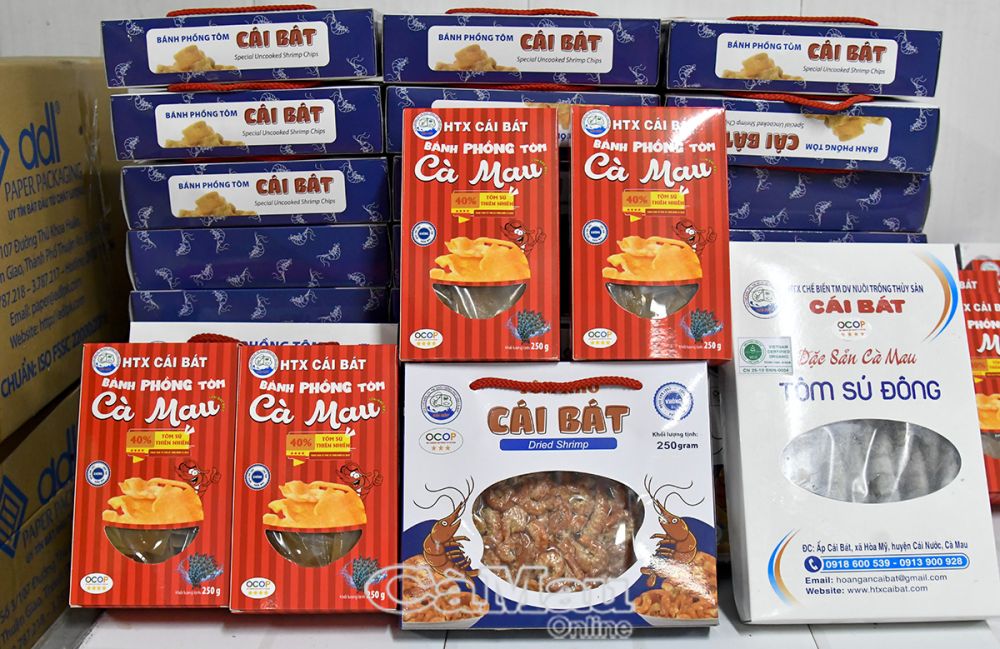
All products of the cooperative are produced according to strict processes, ensuring food hygiene and safety and traceability, and are highly appreciated by consumers. Mr. An shared: “In addition to the farming area, to have good raw materials, we always put product quality first, only then will we be favored by consumers and build a sustainable brand. We are proud to have contributed to bringing quality products, imbued with the flavor of Ca Mau sea to every home”.
Currently, the cooperative has 26 members, and is also cooperating with 104 members to expand the organic certified farming area and food safety certified farming area, aquaculture production scale of 178 hectares; processing various aquatic products reaching 50-60 tons/year, strongly consumed in Can Tho City, Ho Chi Minh City, Hanoi, Hai Phong... and present in AEO supermarkets in Long Bien, Ha Dong (Hanoi). Notably, frozen tiger shrimp products are certified with 4-star OCOP and certified as typical rural industrial products at the regional level; shrimp crackers are certified with 4-star OCOP; dried shrimp, fish cakes, and live sea crabs all achieve 3-star OCOP.
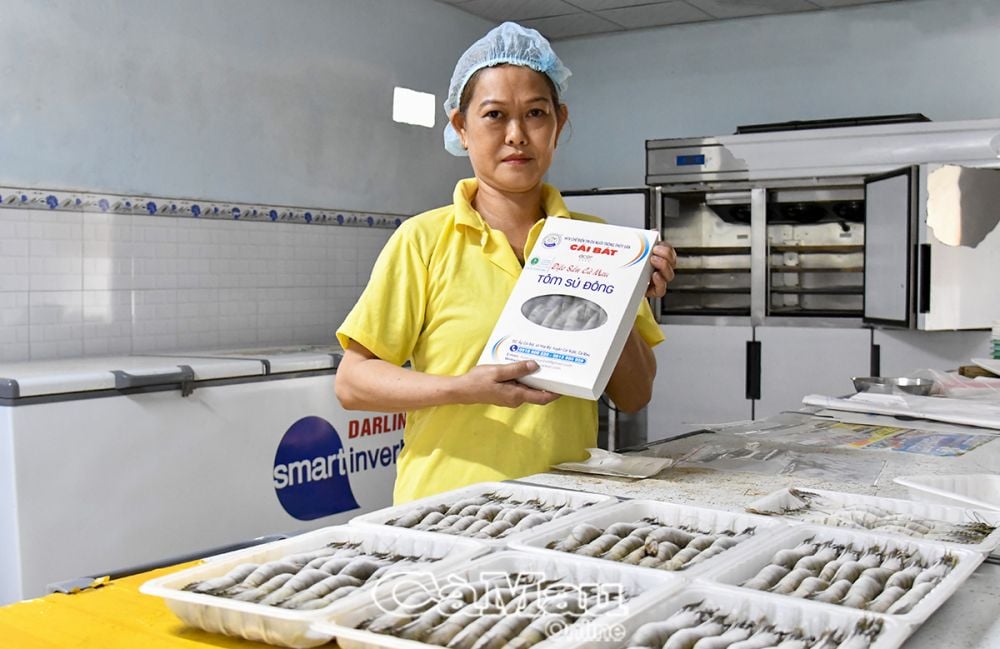
One of the important factors that contributed to the success of Cai Bat Cooperative is its simple and effective operating model. That is, each member produces their own land, but must follow the farming process and techniques set forth by the Cooperative, and when members create products, the Cooperative will buy them back to sell on the market. This brings double benefits, helping members have a stable product output, selling at a higher price than the market price, and creating a source of income for the Cooperative to operate.
During the development process, Cai Bat Cooperative has always proactively connected with the Department of Planning and Investment (now the Department of Finance), the Department of Agriculture and Rural Development (now the Department of Agriculture and Environment), the Cooperative Union and the Department of Industry and Trade to receive timely support on legal procedures as well as connecting to the consumption market.
Brighten up the homeland
In the countryside that is used to traditional farming, Cai Bat Cooperative has emerged as a bright spot, with farmers themselves owning modern machinery and equipment, bringing a new breeze to the countryside. People realize that only innovation can truly bring long-term, sustainable prosperity to their families and their homeland.
This is not only a business unit but also a united community, developing together. Mr. Le Minh Tang's family has 2.5 hectares of shrimp farming land, the economy has been in difficulty due to many years of shrimp failure. Participating in the cooperative brings many benefits to Mr. Tang and the members, that is, everyone works together to renovate the pond, release the seeds simultaneously, helping to limit diseases and minimize negative impacts on the environment. At the same time, everyone shares successful experiences, supports each other, thereby improving the efficiency of shrimp farming.
Mr. Tang affirmed: “Thanks to chain linkage and high technology application, this cooperation model has helped members increase their income, significantly improve their lives, and at the same time create a positive and sustainable working environment.”
With the desire to reach out, Cai Bat Cooperative constantly invests in research and development of new products, expands production scale and improves service quality. The goal of the Cooperative is not only to increase revenue and output, but also to contribute to the sustainable development of the Ca Mau and the whole country's seafood industry, aiming to build a prestigious brand in the international market. That is demonstrated by the specific targets that the Cooperative has set for aquaculture in 2025: 1,200 tons of black tiger shrimp (400 tons in 2022); 400 tons of sea crab (180 tons in 2022)... Currently, members of the Cooperative apply a 2-phase crab farming model, with a yield of 350 kg/ha/year.
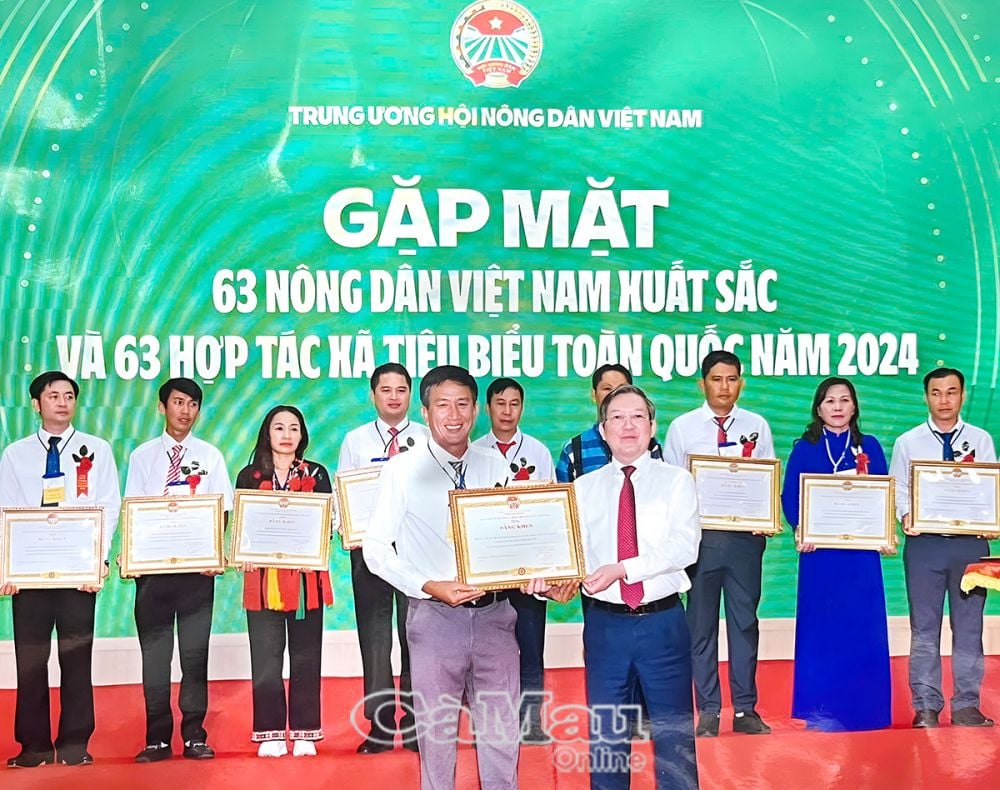
With the title of a typical national cooperative and quality OCOP products, Cai Bat Cooperative deserves to be the pride of the southernmost land, a testament to the great potential of the agricultural and aquatic products industry of Ca Mau.
In recognition of its efforts, Cai Bat Cooperative has received many certificates of merit from the Ministry of Agriculture and Rural Development for its outstanding achievements in linking production and consumption of agricultural products, its positive contributions to innovation, development and improvement of collective economic efficiency; and many certificates of merit from authorities at all levels of Ca Mau province.
Let me end this article with admiration and respect for the hardworking and creative farmers. In the future, we can fully expect further development of Cai Bat Cooperative as the Cooperative holds the “golden key” and carries the aspiration to elevate the aquaculture economy, the spearhead economic sector of Ca Mau.
Dream of the Ordinary
Source: https://baocamau.vn/dua-san-vat-que-huong-vuon-tam-the-gioi-a38459.html


![[Photo] Party and State leaders attend the special art program "You are Ho Chi Minh"](https://vphoto.vietnam.vn/thumb/1200x675/vietnam/resource/IMAGE/2025/5/18/6895913f94fd4c51aa4564ab14c3f250)


![[Photo] Special flag-raising ceremony to celebrate the 135th birthday of President Ho Chi Minh](https://vphoto.vietnam.vn/thumb/1200x675/vietnam/resource/IMAGE/2025/5/19/1c5ec80249cc4ef3a5226e366e7e58f1)
![[Photo] Party and State leaders visit President Ho Chi Minh's Mausoleum](https://vphoto.vietnam.vn/thumb/1200x675/vietnam/resource/IMAGE/2025/5/19/d7e02f242af84752902b22a7208674ac)
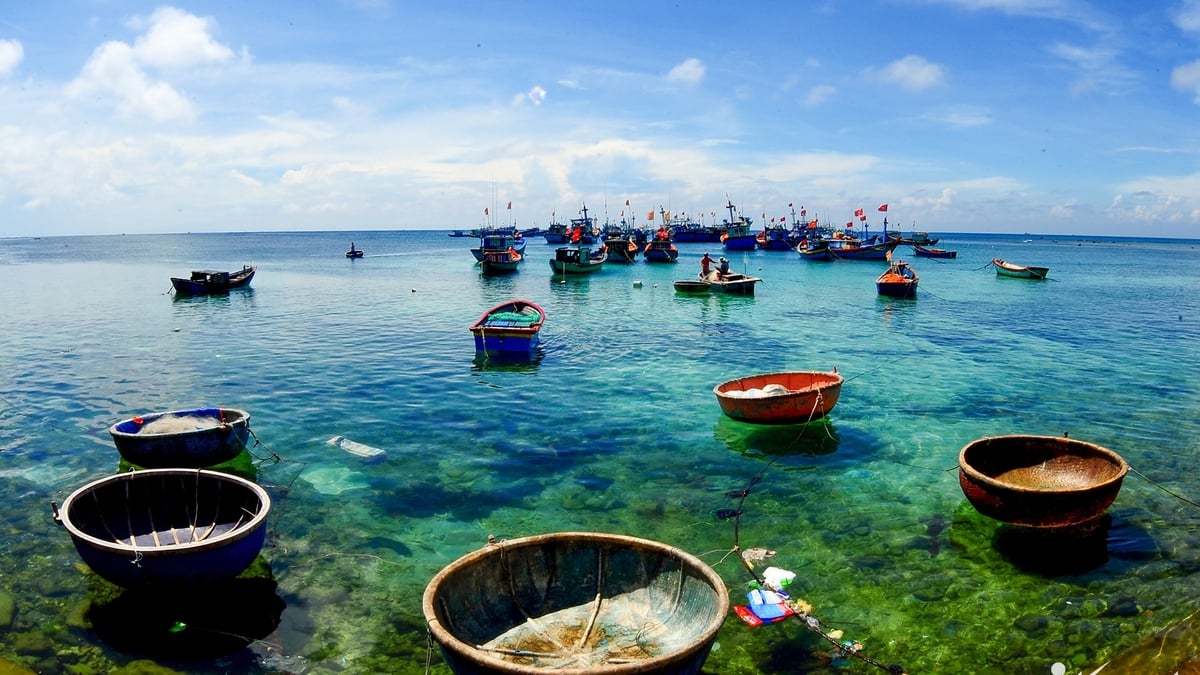






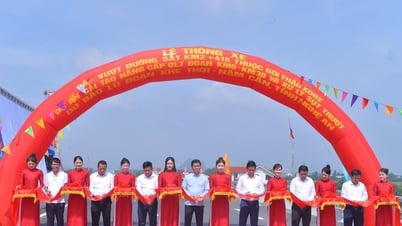
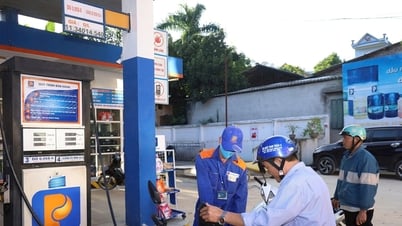
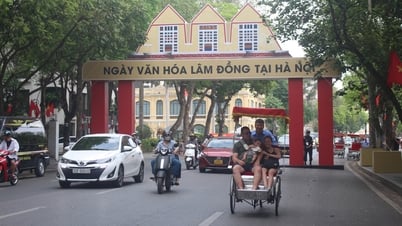







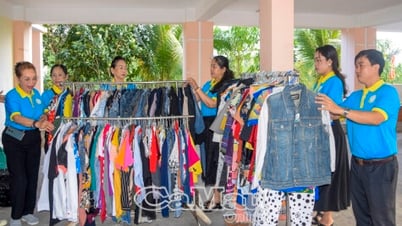


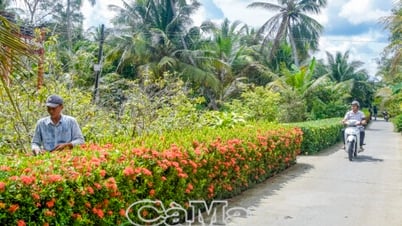
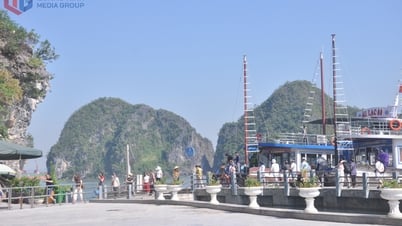















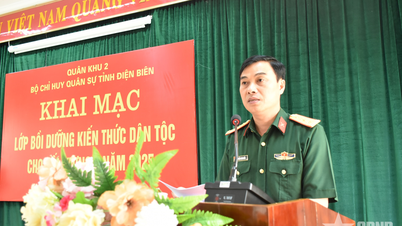




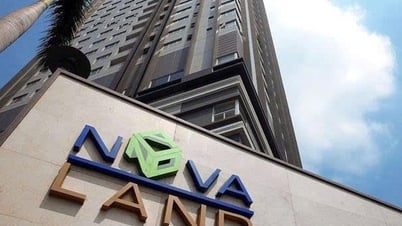





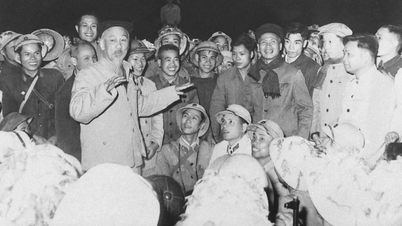











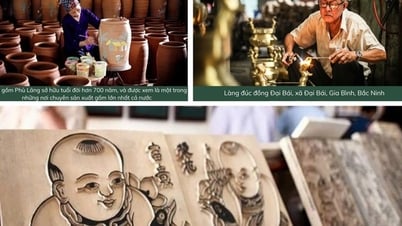

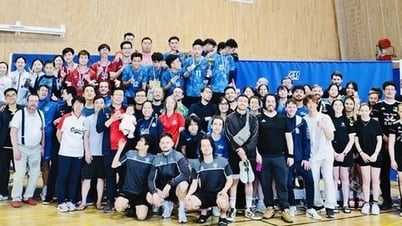








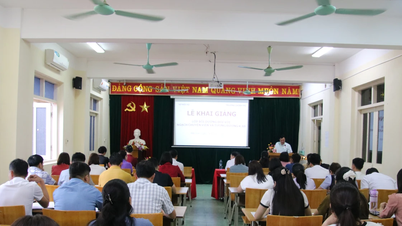









Comment (0)